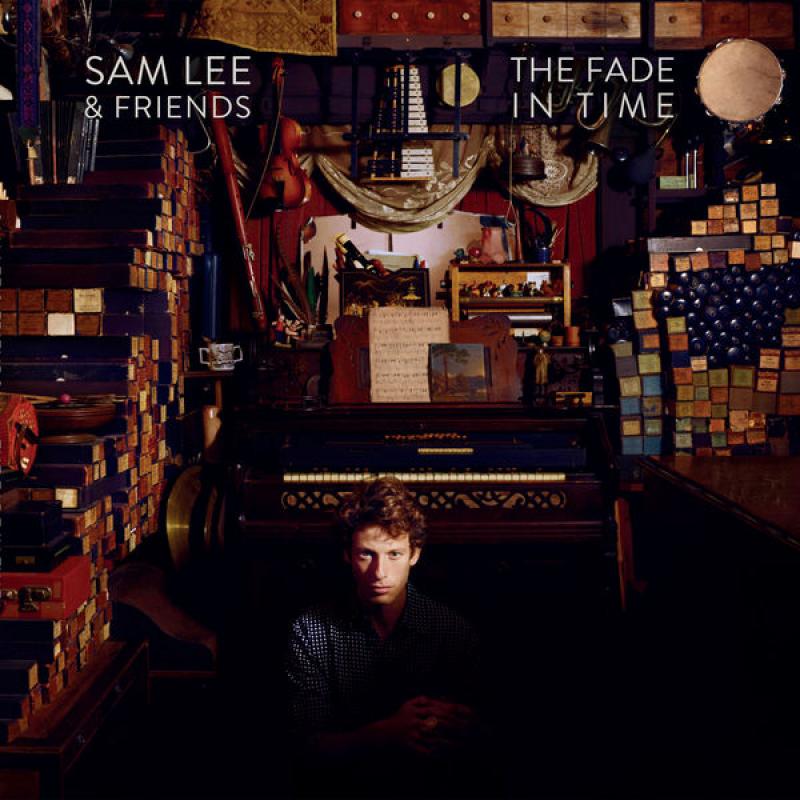CD: Sam Lee & Friends – The Fade in Time | reviews, news & interviews
CD: Sam Lee & Friends – The Fade in Time
CD: Sam Lee & Friends – The Fade in Time
Traditional folk ballads remade with boldness and daring musicality

What was that about the difficult second album? If you thought Ground of its own, Sam Lee’s Mercury-nominated album of 2012, broke new and fertile ground for traditional folk music, then you’ll find The Fade of Time even richer, even more musically ambitious.
Sampled sounds, from mineral to animal, archive material of early a cappella recordings, and clips of interviews with mentors who have passed these songs down in the oral tradition are imaginatively deployed. Lee has gathered his material from his country-wide wanderings, as he did with his debut album, and as he has from his own mentor, the late Scottish Traveller Stanley Robertson. He’s also written a brief note for each song, outlining, as far as is known, its personal history, and how he came to learn it.
Clearly, Lee is far from wedded to musical fidelity or any notions of historical authenticity, but aims to express a distinct flavour and colour with each song. The popular Napoleonic ballad “Bonny Bunch of Roses” is an utterly unique arrangement on which you'll hear an archive recording of Eastern European cantorial singing, before the deep percussive instrumentation leads us to Lee’s rich baritone.
“Moorlough Maggie” begins with cascading Koto notes, like a waterfall in a Japanese garden. It’s spare and delicate, quite unlike opening track “Johnnie O the Brine”, which is all pulsing tarantella rhythms, rousing hunting horns and sounds of keening wild creatures.
With arrangements this musically adventurous, you might fear that the poetry and drama unique to each song would be drowned out, but Lee is adept at drawing out the dramatic narratives of these ballads, as he does so affectingly in “Blackbird”. Produced by Penguin Cafe's Arthur Jeffes and Jamie Orchard-Lisle, this is an album that gets richer with each listen.
Overleaf: watch the video for “Blackbird”
rating
Explore topics
Share this article
The future of Arts Journalism
You can stop theartsdesk.com closing!
We urgently need financing to survive. Our fundraising drive has thus far raised £49,000 but we need to reach £100,000 or we will be forced to close. Please contribute here: https://gofund.me/c3f6033d
And if you can forward this information to anyone who might assist, we’d be grateful.

Subscribe to theartsdesk.com
Thank you for continuing to read our work on theartsdesk.com. For unlimited access to every article in its entirety, including our archive of more than 15,000 pieces, we're asking for £5 per month or £40 per year. We feel it's a very good deal, and hope you do too.
To take a subscription now simply click here.
And if you're looking for that extra gift for a friend or family member, why not treat them to a theartsdesk.com gift subscription?
more New music
 Yazmin Lacey confirms her place in a vital soul movement with 'Teal Dreams'
Intimacy and rich poetry on UK soul star's second LP
Yazmin Lacey confirms her place in a vital soul movement with 'Teal Dreams'
Intimacy and rich poetry on UK soul star's second LP
 Solar Eyes, Hare & Hounds, Birmingham review - local lads lay down some new tunes for a home crowd
Psychedelic indie dance music marinated in swirling dry ice
Solar Eyes, Hare & Hounds, Birmingham review - local lads lay down some new tunes for a home crowd
Psychedelic indie dance music marinated in swirling dry ice
 The Lemonheads' 'Love Chant' is a fine return to form
Evan Dando finally gets back in the saddle with an album of new tunes
The Lemonheads' 'Love Chant' is a fine return to form
Evan Dando finally gets back in the saddle with an album of new tunes
 Music Reissues Weekly: Evie Sands - I Can’t Let Go
Diligent, treasure-packed tribute to one of Sixties’ America’s great vocal stylists
Music Reissues Weekly: Evie Sands - I Can’t Let Go
Diligent, treasure-packed tribute to one of Sixties’ America’s great vocal stylists
 'Deadbeat': Tame Impala's downbeat rave-inspired latest
Fifth album from Australian project grooves but falls flat
'Deadbeat': Tame Impala's downbeat rave-inspired latest
Fifth album from Australian project grooves but falls flat
 Heartbreak and soaring beauty on Chrissie Hynde & Pals' Duets Special
The great Pretender at her most romantic and on the form of her life
Heartbreak and soaring beauty on Chrissie Hynde & Pals' Duets Special
The great Pretender at her most romantic and on the form of her life
 The Last Dinner Party's 'From the Pyre' is as enjoyable as it is over-the-top
Musically sophisticated five-piece ramp up the excesses but remain contagiously pop
The Last Dinner Party's 'From the Pyre' is as enjoyable as it is over-the-top
Musically sophisticated five-piece ramp up the excesses but remain contagiously pop
 Moroccan Gnawa comes to Manhattan with 'Saha Gnawa'
Trance and tradition meet Afrofuturism in Manhattan
Moroccan Gnawa comes to Manhattan with 'Saha Gnawa'
Trance and tradition meet Afrofuturism in Manhattan
 Soulwax’s 'All Systems Are Lying' lays down some tasty yet gritty electro-pop
Belgian dancefloor veterans return to the fray with a dark, pop-orientated sound
Soulwax’s 'All Systems Are Lying' lays down some tasty yet gritty electro-pop
Belgian dancefloor veterans return to the fray with a dark, pop-orientated sound
 Music Reissues Weekly: Marc and the Mambas - Three Black Nights Of Little Black Bites
When Marc Almond took time out from Soft Cell
Music Reissues Weekly: Marc and the Mambas - Three Black Nights Of Little Black Bites
When Marc Almond took time out from Soft Cell
 Album: Mobb Deep - Infinite
A solid tribute to a legendary history
Album: Mobb Deep - Infinite
A solid tribute to a legendary history
 Album: Boz Scaggs - Detour
Smooth and soulful standards from an old pro
Album: Boz Scaggs - Detour
Smooth and soulful standards from an old pro

Add comment